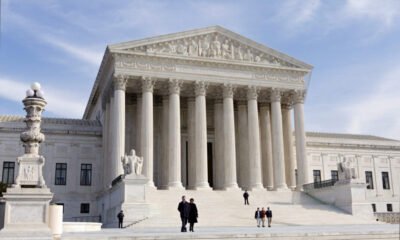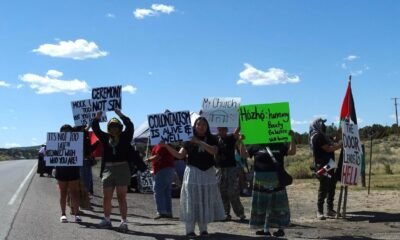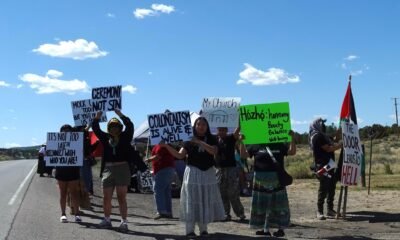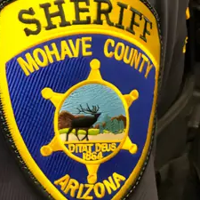arizona
‘This Must End’: Protestors Halt Highway 89 on Navajo Nation Against Uranium Transports
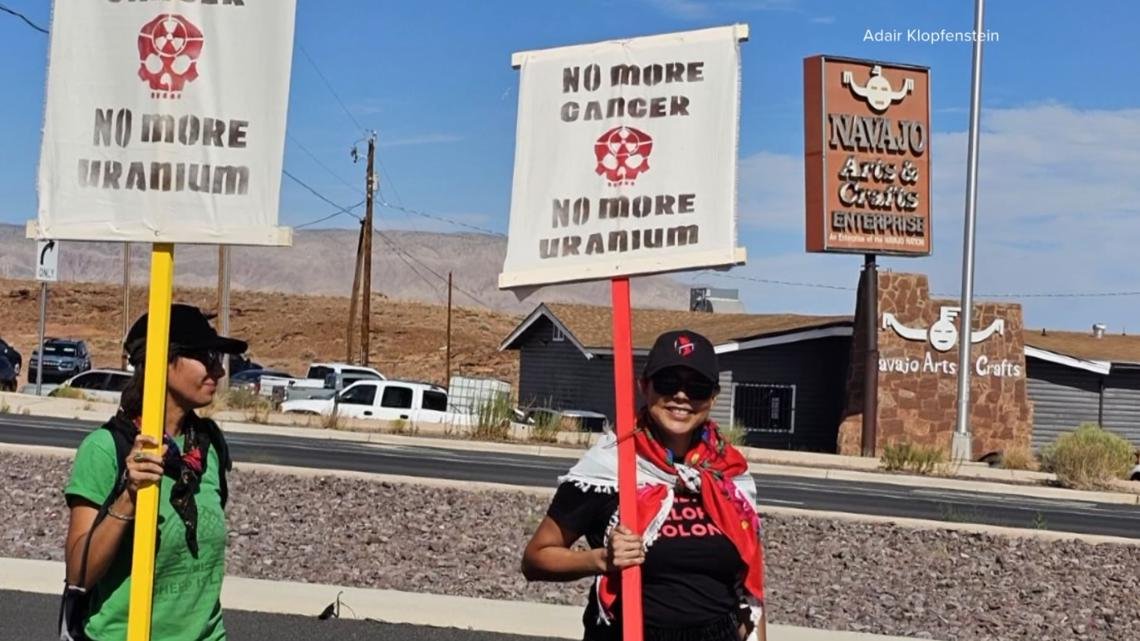
A pause of the uranium transports from the mine south of the Grand Canyon through the Navajo Nation to Utah is currently in effect.
PHOENIX — The Navajo Nation is taking a stand against the transportation of uranium ore shipments through their land.
A temporary halt on uranium shipments from a mine south of the Grand Canyon, passing through the Navajo Nation to Utah, has been enforced by Governor Katie Hobbs’ administration. The duration of this pause remains uncertain.
On Friday, protesters gathered on Highway 89 in Cameron, Arizona, challenging Pinyon Plain Mine owner Energy Fuels’ practice of trucking uranium ore through the Navajo Nation to Utah.
Uranium has notably impacted the Navajo Nation since the 1940s, leading to environmental and health repercussions.
“We’ve seen the effects of these things in the past on our land, the spills into our rivers, into our communities, the residual effects on our on our health, of our children, our elders,” Cameron resident Adair Klopfenstein said. “It’s awful, and we don’t want it to happen again.”
The Pinyon Plain Mine, formerly Canyon Mine, began active uranium mining in December and is slated for at least five years of production. The company indicated that transport of uranium ore to a mill in southeast Utah would commence in July or August, and this seems to have occurred before the pause was enacted.
“I call it illegal smuggling across our border and then through the Navajo Nation,” Navajo Nation President Buu Nygren said. He expressed gratitude to Governor Hobbs’ administration for negotiating a pause with Energy Fuels.
Energy Fuels, in a statement, insisted that they complied with federal laws and permits for transportation.
“Unlike gasoline, diesel, propane and other toxic and hazardous materials that travel on the roads, highways, interstates and rails daily, the transport of uranium ore presents far fewer risks to human health or the environment,” part of the statement read. However, Nygren countered that the company was not abiding by Navajo Nation law. “Everything about it was illegal,” Nygren said. “Obviously their attorneys probably didn’t understand the regulations and the laws across the Navajo Nation.”
Controversy has long surrounded the mine itself. “I have serious questions about whether that uranium mine ever should have been permitted in that location,” Arizona Attorney General Kris Mayes told 12News Political Insider Brahm Resnik. Mayes noted that her office is investigating new information regarding the mine, including a study that suggests potential contamination of the Havasupai tribe’s only drinking water supply.
When asked about the possibility of shutting down or stalling the mine’s operations, Mayes stated that her office is “looking at all of our options.”
Laura Crossey, lead author of the University of New Mexico study, emphasized the need to reassess the situation and suggested that a halt or closure of the mine might be necessary.
Energy Fuels agreed to the voluntary pause to address concerns raised by Nygren but stated that they can “legally restart transport at any time.” “It needs to stop,” Klopfenstein said. “We need to protect our children and our future and our sovereignty and stand up against this.”
This is a completely advertising post.
